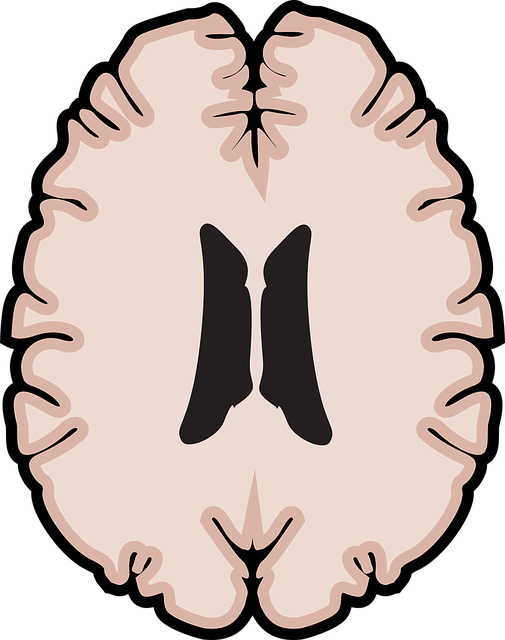Understanding Mental Wellness Programs' effectiveness requires a strategic evaluation focusing on mental health status, satisfaction, behavioral changes, and cultural sensitivity. Northglenn French Speaking Therapy (NFST) faces unique challenges serving its primarily French-speaking community, which is addressed through healthcare provider cultural competency training, crisis intervention strategies, and culturally relevant techniques. Evaluating NFST's programs involves a combination of qualitative research, quantitative surveys, and Risk Management Planning, fostering continuous service improvement and boosting participant well-being through initiatives like Community Outreach and podcast series production. The therapy center dynamically adapts its Mental Wellness Coaching Programs based on client feedback and data from self-reports, sessions, and outcome measures, ensuring personalized coaching for diverse mental wellness journeys.
“Mental wellness program evaluation is a multifaceted process crucial for understanding and enhancing therapeutic interventions. This article explores effective methods, drawing insights from real-world examples like Northglenn French Speaking Therapy. We delve into unique considerations in program design tailored to linguistic and cultural needs.
Key strategies for data collection, assessing impact, and continuous improvement are discussed, offering valuable insights for professionals aiming to optimize mental wellness initiatives, including those at specialized centers like Northglenn.”
- Understanding Mental Wellness Programs: A Foundation for Evaluation
- Northglenn French Speaking Therapy: Unique Considerations in Program Design
- Data Collection Techniques for Effective Evaluation
- Assessing Impact and Outcomes: Metrics and Methodologies
- Continuous Improvement: Iterating Based on Evaluation Findings
Understanding Mental Wellness Programs: A Foundation for Evaluation

Understanding Mental Wellness Programs is a pivotal step before evaluating their effectiveness. These programs are designed to support individuals’ mental health and well-being, addressing various issues such as stress management, anxiety, depression, and even specific challenges like those faced by Northglenn’s French-speaking community. Evaluating these initiatives requires a comprehensive approach that considers the unique needs of diverse populations.
A solid evaluation method involves assessing the program’s impact on participants’ mental health status, satisfaction levels, and behavioral changes. It should also explore how the program aligns with cultural sensitivity in mental healthcare practice, as evidenced by improvements in confidence boosting among individuals from various backgrounds, including French-speaking communities in Northglenn. Incorporating Healthcare Provider Cultural Competency Training can significantly enhance these programs’ outcomes, ensuring culturally responsive care that respects and embraces diverse perspectives.
Northglenn French Speaking Therapy: Unique Considerations in Program Design

In the context of mental wellness program evaluations, Northglenn French Speaking Therapy (NFST) presents unique challenges and considerations due to its specific target population—individuals who speak French as their primary language. Effective NFST program design requires a deep understanding of cultural nuances and barriers that may impact therapy engagement and outcomes. One key aspect is ensuring the inclusion of healthcare provider cultural competency training, which equips staff with the skills to deliver sensitive and effective care tailored to French-speaking clients’ needs.
The programs must also incorporate strategies for crisis intervention guidance, as language barriers can exacerbate emotional distress during moments of crisis. Additionally, promoting emotional well-being through culturally relevant techniques is essential. By integrating these considerations into program design, NFST initiatives can better serve their target community, fostering more inclusive and effective mental health support.
Data Collection Techniques for Effective Evaluation

Evaluating mental wellness programs requires a robust data collection strategy to ensure their effectiveness and impact. Northglenn French Speaking Therapy, like many other organizations, leverages diverse techniques to gather valuable insights. One essential method is qualitative research, which involves in-depth interviews and focus groups with participants to understand their experiences and perceptions. This approach allows for rich, contextual data that can reveal the program’s strengths and areas for improvement from the user’s perspective.
Additionally, quantitative surveys and metrics play a crucial role in measuring the success of mental wellness initiatives. These tools provide measurable outcomes, enabling comparisons over time and across different segments of the Northglenn French Speaking Therapy community. Integrating these data collection techniques—from qualitative exploration to quantitative analysis—forms a comprehensive evaluation framework that guides the continuous improvement of services, ultimately enhancing the overall well-being of participants through programs like Community Outreach Program Implementation and Mental Wellness Podcast Series Production while ensuring robust Risk Management Planning for Mental Health Professionals.
Assessing Impact and Outcomes: Metrics and Methodologies

Evaluating the impact and outcomes of mental wellness programs is a critical aspect of ensuring their effectiveness, especially in diverse communities like Northglenn’s French-speaking population. Metrics play a pivotal role in measuring success; these can include self-reported surveys, where participants assess their well-being and satisfaction with the program. Such tools provide valuable insights into individual experiences and perceptions of improvement.
Additionally, leveraging Empathy Building Strategies, Communication Strategies, and Compassion Cultivation Practices within the assessment process can offer nuanced perspectives. For instance, therapist-client interactions can be observed and evaluated, providing data on the quality of care and the development of therapeutic alliances. These methodologies foster a deeper understanding of the program’s reach and its potential to cultivate positive mental health outcomes in Northglenn’s French-speaking community.
Continuous Improvement: Iterating Based on Evaluation Findings

Mental wellness programs are not static; they should evolve and adapt based on continuous evaluation. At Northglenn French Speaking Therapy, we understand that every individual’s journey to mental wellness is unique. Therefore, our approach involves regular assessment and feedback mechanisms to ensure the program remains effective and aligned with the changing needs of participants. By collecting and analyzing data from various sources, such as client self-reports, therapy sessions, and outcome measures, we can identify areas for improvement and make necessary adjustments.
This iterative process, grounded in evidence-based practices, allows us to enhance the overall effectiveness of our Mental Wellness Coaching Programs Development. For instance, if the evaluation reveals a need for better Social Skills Training or more support with Emotional Regulation, we can promptly integrate targeted interventions into our curriculum. This dynamic approach ensures that participants receive tailored support, fostering their mental wellness and empowering them to lead fulfilling lives.
Mental wellness programs, such as Northglenn French Speaking Therapy, require rigorous evaluation methods to ensure their effectiveness. By understanding the foundational principles of mental wellness program design and employing diverse data collection techniques, practitioners can accurately assess impact and outcomes. This article has explored key evaluation methodologies, including unique considerations for specialized programs like Northglenn French Speaking Therapy, continuous improvement through iteration, and essential metrics for measuring success. Integrating these strategies empowers professionals to optimize their practices and deliver impactful mental wellness support.













